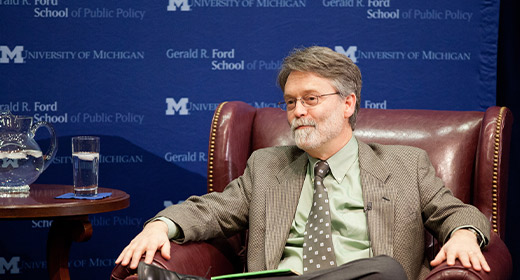
In the tumultuous confirmation process of Judge Brett Kavanaugh, many want to apply a legalistic gloss to the investigation of sexual assault allegations. Ford School Professor Richard Hall, however, pushes back against granting Kavanaugh the benefit of the doubt opining that “It is better that ten qualified judges get rejected than let one criminal sit on the Supreme Court.”
Published on October 4, 2018 in the Detroit Free Press, Professor Hall’s op-ed enumerates the differences between court room proceedings and the Supreme Court confirmation process that ensures only qualified nominees go on to sit on the bench of the highest court in the land. For this reason, Hall concludes "Reasonable doubt should acquit a criminal defendant, but it should eliminate a Supreme Court nominee."
The risk, Professor Hall writes, is far too great as a “bad justice…would affect everyone, damage the court, and last a lifetime.” As confirmation hearings are not legal proceedings, the standard of proof must be lower than a “reasonable doubt,” as the goal is not to ascertain guilt, but to determine qualifications. Hall suggests that Senators “do not need to be convinced that the allegations…are true,” rather in order to preserve the legitimacy and effectiveness of the Court, “They only need to be unsure they [the allegations] are false.”
To read the full op-ed, click here.
Richard Hall is a professor of political science and public policy; Professor Hall is also a recipient of the Richard F. Fenno Award from the American Political Science Association and received the Jack L. Walker Award from the American Political Science Review.
